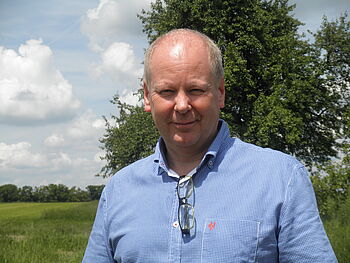Prof. Heutink has previously carried out his research at the VU University Medical Center in Amsterdam. Recently he has been recruited by DZNE to continue with his work in Tübingen. Prof. Heutink had already ongoing collaborations with colleagues in Tübingen. “It wasn’t difficult to make the decision to move from Amsterdam to Tübingen. I’ve already known and collaborated with several of my colleagues here for a long time. The DZNE site in Tübingen is comparatively new, having been in existence for just under four years, but it is already very well placed both within the DZNE but also within the neuroscience community in Tübingen. It therefore provides an excellent environment for my research. Apart from the strong clinical research there are also experts on neuropathology and animal models. I’m happy for the opportunity to help shape the further development.”
As the site speaker, Heutink aims to extend the DZNE’s activities particularly in the field of applied research: “The Tübingen site of the DZNE has been particularly strong in the clinical research on Parkinson’s disease. What we intend to do is to extend these activities to other forms of neurodegeneration such as Alzheimer’s and Fronto-Temporal Dementia for which there is excellent pre-clinical research. For this, we will be cooperating closely with university clinics and other facilities. Our aim is to strengthen the connections between clinical and pre-clinical research, which we believe is essential both for understanding the disease process and for developing successful therapies.”
Heutink will continue to pursue his own area of research, and especially the biological consequences of risk factors identified by genomic screens. He believes this will be the key to develop more successful therapies. “In many respects, the human genome is still a mystery. There are many mutations and risk factors of which we don’t really know what they do. Some of these mutations interact with each other, so one should not consider them separately. We will be looking into such networks by studying the effects of multiple risk factors. For this, we will be using genomic and high throughput cellular imaging techniques. In this way we want to figure out how the interplay of different risk factors allows diseases to arise that harm the nervous system.”

